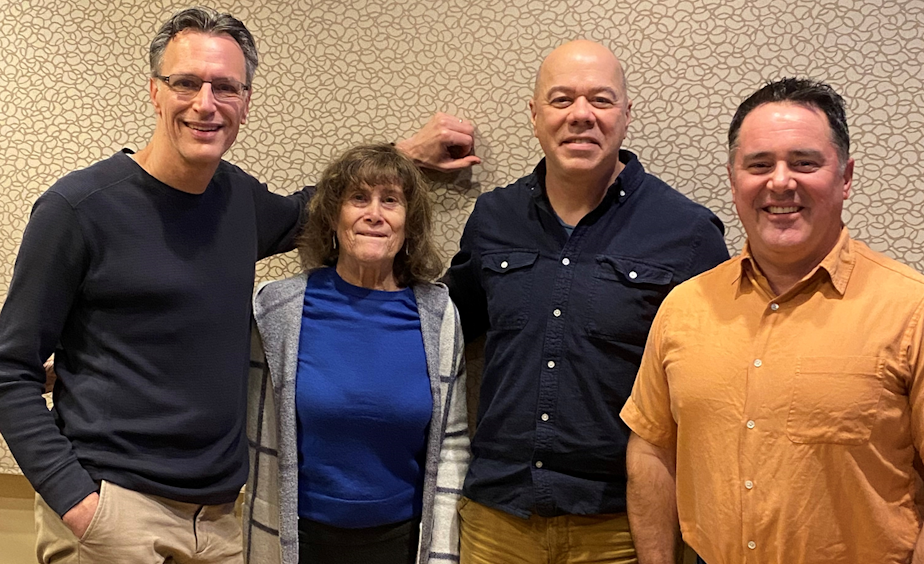Week in Review: City Council, state initiatives, and chicken checks

Bill Radke discusses the week's news with political analyst and contributing columnist Joni Balter, Geekwire’s Mike Lewis, and Seattle Channel’s Brian Callanan.
This week, the city swore in five new City Council members. It is the least experienced Seattle City Council in more than a century. There are only three returning members. Two won their reelections in the fall. One of them did not have an election. That is new Council President Sarah Nelson. Nelson is an at-large Council member meaning she reps the entire city not just one district. How much unanimity vs. disagreement do we expect? What will they pass this year?
Seattle’s minimum wage for large employers, 500 workers or more, got its annual inflation increase. It rose from $18.69 an hour to $19.97 an hour. That's higher than any other major city in the U.S. But not as high as Tukwila, which is $20.29 an hour. In the city of SeaTac, hospitality and transportation workers make $19.71 an hour, minimum. How do these cities decide what the right minimum wage is?
The state Legislature is back in session next week. Both houses have a Democratic majority. The governor is a Democrat. They've passed some very progressive laws. However, there are conservatives in this state, and a lot of folks who just don't like to be taxed, particularly if it makes gasoline more expensive. A conservative group has turned in signatures for five of its six initiatives to the Legislature. Each one would roll back some progressive legislation. What are they looking to roll back?
Employers are no longer allowed to test for cannabis when they make hiring decisions. Employers can still test for other drugs. They can also screen employees for cannabis use after an incident, if there is suspicion that a worker was under the influence while on the job. What other laws changed in Washington this year?
Sound Transit is considering building gates that you'd have to pass through with proof of payment before you could ride the light rail. They say that for every two passengers who pay for their light rail trips in Seattle, at least one more skips the fare. Why aren’t people paying? What would the downside be to these gates?
Sponsored
Washington state government is giving out $40 million it got from chicken and tuna companies. Those companies settled a lawsuit over price fixing. The state is only giving that money to people who make under a certain income. Some people object to that because all of us overpaid for chicken and tuna if we bought it. Do chicken and tuna buyers deserve to get their money back no matter what their income is?


